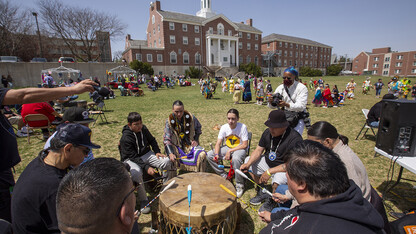· 3 min read
Husker-led project aims to bolster child welfare workforce

Staff turnover in child welfare agencies is typically up to six times the national average turnover rate across all industries. High turnover is just one example of costly workforce issues that can hurt vulnerable children.
The Quality Improvement Center for Workforce Development at the University of Nebraska-Lincoln will partner with eight groups around the country to strengthen their workforces.
The selected child welfare agencies are: the Division of Milwaukee (Wisconsin) Child Protective Services; the Eastern Band of Cherokee Indians; the Louisiana Department of Children and Family Services; the Nebraska Department of Health and Human Services, Division of Child and Family Services; the Ohio Department of Job and Family Services; the Oklahoma Department of Human Services; the Virginia Department of Social Services; and the Washington Department of Social and Health Services, Children’s Administration.
The groups were chosen through a national process that began in January. Applicants had to demonstrate their workforce needs and willingness to participate in a research project.
Michelle Graef, research associate professor in industrial-organizational psychology at the Center on Children, Families and the Law at Nebraska and director of the Quality Improvement Center for Workforce Development, said the fact that so many organizations applied indicates how pervasive workforce issues are for child welfare systems across the country.
“There are many child welfare agencies that are striving to attract and retain well-qualified staff, and we want to use the best available research to help them achieve that goal,” Graef said. “A strong workforce is vital to the children and families served in child welfare, and we are committed to building the evidence base through what we learn by working with these eight sites.”
The organizations represent a variety of systems.
“Some are centralized state systems, others are county-administered systems, and we have a county and a tribe that have unique local needs,” Graef said. “These organizations operate in a mix of urban and rural communities across the U.S., so they will inform our collective knowledge about what works to strengthen the child welfare workforce in a variety of settings.”
The Quality Improvement Center for Workforce Development was established in 2016 and is funded through a five-year cooperative agreement with the Children’s Bureau. The team, led by faculty at Nebraska, includes experts in child welfare, workforce, implementation, evaluation and dissemination from the University of Colorado, Denver; University of Louisville; University of Tennessee, Knoxville; C.F. Parry Associates; CLH Strategies and Solutions; and Great Eastern Consulting.
Over the next four years, the center will work with the selected agencies to address and study potential solutions to their workforce issues. A review of the literature, benchmarking survey of current workforce trends, and implementation and evaluation tools will be developed and shared as part of the project.
“Ultimately, a stronger workforce with less turnover and more supportive organizational environments should improve the outcomes of the vulnerable families and children served by the child welfare system,” Graef said.
The goal is that the project will lead to workforce strategies applicable to other public and tribal child welfare agencies and an improved understanding of the connection between the child welfare workforce and outcomes for children and families.







